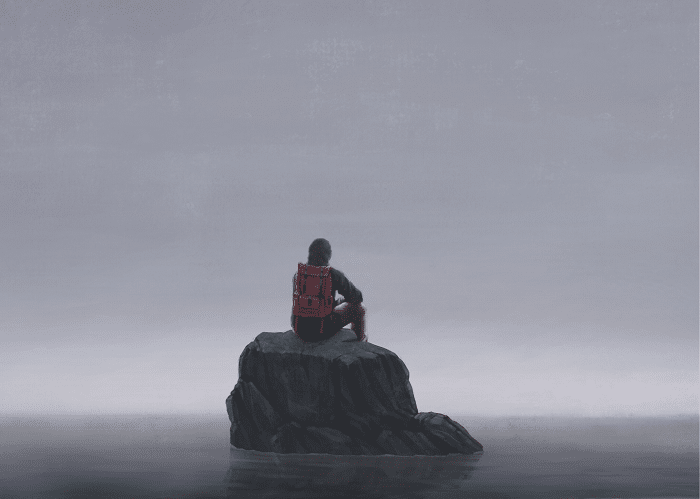It’s funny how certain people or mannerisms can really trigger us. How we can let even the smallest of things get under our skin. Have you ever had that one person that just really grinds your gears, but you can’t place a finger on why? Maybe it’s not a person at all, maybe it’s a certain mannerism or ideology that just really gets you going.
The truth is, the idea that any of us could ever truly be objective is a fallacy. We all bring our own individual differences in perception into everything we do- our biases, beliefs, and experiences into every situation.
How It Works
Many of the judgments we make are done unconsciously. We don’t realize our errors in thinking- we believe our beliefs to be true. In fact, without knowing it, our biases further entrench us into our faulty thinking. Interestingly enough, in efforts to make sense of our world, we subconsciously place much more emphasis on the details that reinforce our beliefs than that of which doesn’t align with them.
But, what do our judgments really say about us?

Take a look at the picture above. What is it that you see?
Do you see a child that’s sad? What about one who’s deep in thought? Honestly, there could be any number of things you see when looking at this picture. As humans, we unconsciously fill in the gaps of missing information when it’s not given to us.
You see, we strive to understand our environments. At a basic level, we really can’t stand the unknown. So, when confronted with a person or situation that is new to us, we’re mentally driven to complete the puzzle- to create a known out of that which was previously unfamiliar.
So, how might we fill in those gaps?
Just like artificial intelligence draws on data to execute its algorithms, so do we draw on the information available to us to make our judgments. We fill the gaps with what we know best, ourselves and the experiences that have previously shaped us.
It was Carl Jung who so eloquently said, “Everything that irritates us about others can lead us to an understanding of ourselves.” And, in reality, he couldn’t be more right, if we take a step back and examine the judgments we place on others, we can learn a great deal about who we are.
So, next time you judge someone, ask yourself the following questions:
“What are my values?”
“What about this person bothers me so much?”
“What do I have in common with this person?”
“Who in my past or current life does this person remind me of?”
“What purpose do my judgments about this person serve?”
Have you given any thought yet to that little girl in the photo above? Turns out, she’s just a child riding in a car. There’s nothing else to interpret, but, I bet you created a few stories or judgments that coincided with the photo.
How Our Judgments Can Hurt Us
The heavy weight of the negative feelings associated with our less than positive judgments can bog us down in so many ways. On an emotional level, the heavy energy associated with negativity can eat away at our mental health. In fact, they can even result in health issues such as insomnia, heart disease, and, believe it or not, cancer!
But, there are other ways those judgments get in the way of our happiness as well. Really, the judgement we place on others can affect our relationships, communication patterns, and even the stability of our lives. For instance, those that struggle to “play in sandbox”, so to speak, tend to struggle in professional settings, may have a less rewarding home life, and can even struggle with isolation due to the inability to manage personal relationships.
“The ability to observe without evaluating is the highest form of intelligence.” — Jiddu Krishnamurti
Our negative judgments can be just as damaging to those around us as they are for us. On a macro level, our judgments are responsible for a lot of hate. Historically, they paint the picture of racism, prejudice, and stigmatizing beliefs. On an individual level, people feel the weight of the judgments we place on them, whether we realize it or not. And, that judgement can be really hurtful.
The truth is, we never know the feelings or experiences of another. That’s why it is always best practice to treat people with love and kindness. Next time you meet someone, try approaching them with an open mind and genuinely seek to understand who they are.
Are You Ready to Break Free from Judgement?
The truth is, personal growth is hard. Working to adopt a non-judgmental attitude towards others requires a great deal of vulnerability and inner strength. It means re-examining the way we think, and really the construct of our being.
It’s a tall task indeed, but if you choose to take the unbeaten path towards, dare I say, enlightenment, you will be taking the first step in your journey towards a happier, healthier you.
“We can’t become what we need to be by remaining what we are.” – Oprah Winfrey
To get started, make sure that you take time on a regular basis to reflect alone and learn more about who you are. You can try journaling, meditation, reading, and filling your brain with information that helps you expand your thinking.
Remember, changing behaviors and thought patterns takes time. Make sure to be patient with yourself and have realistic expectations. We’re all fallible- we make mistakes, regress, and all of that is okay.
Want More?
Are you looking for more content to guide you on your path to a happy, healthy life? Check out the rest of our blog and don’t forget to follow us on social media. We can be found at youthdynamicsmt on Instagram, or People of Youth Dynamics and Youth Dynamics of Montana on Facebook.





